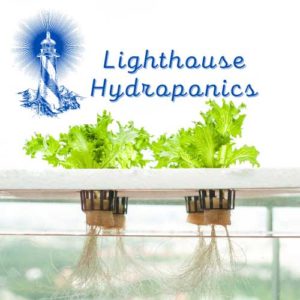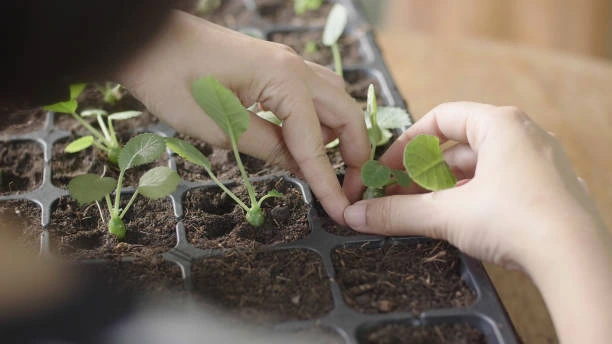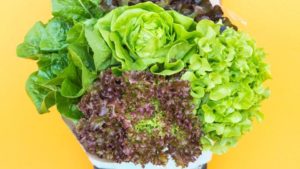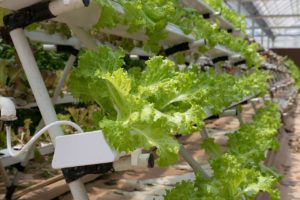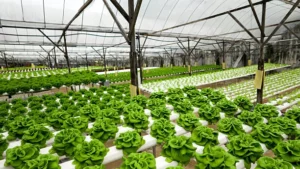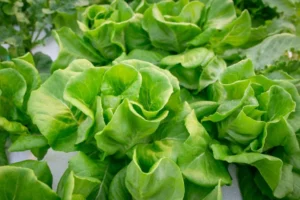Hydroponic gardening is one of the latest trends in growing vegetables at home. With this method, you create an ecosystem for your seedlings that is completely indoors. There are a lot of benefits to growing indoors so that bugs don’t get to them and they don’t get any exposure to the elements. Thus, indoor gardening is more popular than ever before. Using hydroponic nutrients in the soil means adding nutrients directly to the potting soil instead of using liquid plant food every time you water your plant. However, many people wonder whether they can use hydroponic nutrients in the soil or not. If you want to grow vegetables at home but aren’t sure where to start, this article will explain everything you need to know about using hydroponic nutrients in the soil and whether or not they can be used with hydroponics effectively. Read on to learn more.
What are Hydroponic Nutrients in Soil?
Hydroponic nutrients in the soil are a type of hydroponic fertilizer. When you use hydroponic nutrients in the soil, you add nutrients directly to the potting soil instead of using liquid plant food every time you water your plant. This method is also referred to as foliar feeding, particularly when it’s done with feeder roots that are inside the pots instead of on the outside.
Can You Use Hydroponic Nutrients In Soil?
Using hydroponic nutrients in the soil means adding nutrients directly to the potting soil instead of using liquid plant food every time you water your plant. However, many people wonder whether they can use hydroponic nutrients in the soil or not. If you want to grow vegetables at home but aren’t sure where to start, this article will explain everything you need to know about using hydroponic nutrients in the soil and whether or not they can be used with hydroponics effectively. Read on to learn more.
The most important thing in choosing a container for your indoor garden is that it must have holes so that the roots of the plants can receive oxygen from the air. If you’re using hydroponic nutrient solutions, make sure that you also use a bucket with a lid so that excess nutrients don’t spill out during watering.
Benefits of Using Hydroponics For Vegetables
The benefits of using hydroponic nutrients in the soil with hydroponics are many. The plants will grow faster, they will be healthier, and they’ll thrive in the environment. For example, if you use hydroponic nutrients in the soil, your plant will grow faster than if you don’t. It takes a lot of time and effort to grow vegetables without using hydroponic nutrients in soil because it takes so much time to get the right amount of nutrients into the soil. If you use hydroponic nutrients in the soil hydroponics, however, your plant will grow at an accelerated pace because the fertilizer is added directly to the potting soil instead of being watered over and over again. Additionally, plants that are grown inside have less exposure to environmental elements and pests so they stay healthier for longer periods of time. This helps keep them away from all kinds of nasty bugs that could harm your plant or make it sickly. By giving your vegetables less exposure to these elements, you ensure that your vegetables stay healthy for a long period of time.
This information is crucial when deciding whether or not you should use hydroponic nutrients in the soil with hydroponics effectively because it helps answer some important questions about how well this approach will work for you.
Can’t use hydroponic nutrients in soil
Hydroponic gardening is one of the latest trends in growing vegetables at home. With this method, you create an ecosystem for your seedlings that is completely indoors. There are a lot of benefits to growing indoors so that bugs don’t get to them and they don’t get any exposure to the elements. Thus, indoor gardening is more popular than ever before. Using hydroponic nutrients in the soil means adding nutrients directly to the potting soil instead of using liquid plant food every time you water your plant. However, many people wonder whether they can use hydroponic nutrients in the soil or not. If you already decided to grow your vegetables but still you’re not sure when and how should it begin, this information might give you a huge help and walk you through making use of hydroponic nutrients in the soil regardless not they can be used with hydroponics effectively. Continue reading this article to know more.
Disadvantages of Using Hydroponics for Vegetables
There are two major disadvantages to using hydroponic nutrients in the soil. The first disadvantage is that plants are exposed to more water and oxygen than they would be if they were planted directly into the ground. In hydroponics, there is a high ratio of water to oxygen in the system, which means that plants grow very quickly with less effort from the gardener. The second disadvantage is that the plant’s roots don’t have time to feed on the nutrients in the soil before becoming nutrient-deprived. When plants become nutrient-deprived, they stop growing and may die off before you can get them to harvest. This doesn’t happen often but it still happens sometimes as there is no way for water or air to enter into some hydroponic systems.
Should You Use Hydroponic Nutrients In Soil?
There are many benefits to using hydroponic nutrients in the soil, but it can be difficult to know whether or not you should use them. First of all, hydroponics has a limited range of nutrients that can be used, which makes it hard to achieve the highest possible growth rate. In addition, hydroponic nutrients are costly and time-consuming to source. A lot of people also have health concerns with using hydroponic nutrients because they contain chemicals that can cause harm over time if ingested by plants. However, if you’re doing a small garden for personal use, then you don’t need the full range of nutrients offered by hydroponics. Nor do you need to spend a lot of money on the nutrients themselves as long as you don’t grow too large an area. Also, if your own health concerns prevent you from using hydroponic nutrients in the soil, then you should consider other methods like organic gardening. Regardless of what method you choose, try to keep it simple and easy so that your garden doesn’t end up too complicated or take too long to maintain.
FAQ’s
What are the benefits of using hydroponic nutrients in soil?
Yes, you can use hydroponic nutrients in the soil for growing vegetables. There are two kinds of hydroponic plants; rooted and trellised plants. Rooting plants such as tomatoes, peppers, and cucumbers are easier to manage than trellised plants. You may still want to consider hydroponic nutrients in the soil for growing tomatoes, peppers, and cucumbers. Planting radishes, lettuce, and onions are a good addition to your garden in hydroponics.
The Benefits of using hydroponic Nutrients in Soil:
1). Hydroponics offers less maintenance: It is easy to control water levels in a hydroponic system without disturbing the roots of your plants. As a result, you do not need to water them as frequently as if they were planted in the ground. Soils are often much more difficult to control than water levels.
2). Hydroponics Produces More Food: Because there are no nutrient requirements such as with planting in the ground, you can use less fertilizer when growing plants in hydroponics. On average, crops grown in hydroponics produce more food per square foot than those grown under normal soil conditions.
3). Hydroponics Produces Quality Always Fresh Food: Since there is no rotting process (such as with soil-based produce), you can ensure that your food is always fresh and ready for consumption. In addition, there is no risk of food cross-contamination with other products in your garden or garden shed because it must be washed before it can be used.
4). Hydroponics Uses Less Water: In hydroponics, excess water can be reused by filtering and re-circulating it through the system. This prevents the need to pump groundwater uphill or purchase precious water supplies from a utility company.
5). Hydroponics Is More Durable: Hydroponics offer much better plant longevity than traditional gardens because they are less susceptible to infestations or adverse factors such as drought or frost. Moreover due to their consistent conditions they won’t suffer from fungus or pest infestation like traditional soils that damage seedlings early on before they reach their ideal mature sizes.
Are hydroponic nutrients compatible with soil?
Of course, you can! Hydroponic nutrients are designed to be mixed with water and applied directly to the roots of your plants. By using hydroponic nutrients in the soil, you get all of the benefits of hydroponics—including consistent nutrient supply—without the need for expensive equipment or a greenhouse.
If you want to take your indoor garden to the next level, though, there are a few things you should know about hydroponic nutrients for the soil. First, there are some differences between hydroponic fertilizers and regular fertilizers. Hydroponic fertilizers contain more micronutrients and trace elements than traditional fertilizers. Second, make sure to follow the directions on your hydroponic fertilizer package exactly. You want to use it in a specific order so that it has time to be absorbed into the soil before being watered in. Finally, even with hydroponics and hydroponic nutrients for the soil, make sure to rotate your crops so that you always have fresh soil.
What are the risks of using hydroponic nutrients in the soil?
According to the experts, hydroponic nutrients in soil do not pose any risk to your vegetable plants. On the contrary, they can even help your plants. The reason behind this is that hydroponic nutrients are designed for use in indoor grow lights and hydroponic garden systems. They are formulated with high-quality ingredients that are easy to use and absorb quickly. Therefore, they can be safely used even in soil media. However, it is always best to use hydroponic nutrients along with soil composter material, as this will make sure that all the nutrients are reused by the plant instead of being wasted through runoff.
Conclusion
There are many benefits to using hydroponic nutrients in the soil, including the ability to grow fruits and vegetables without soil. This is accomplished by using nutrients that are dissolved in water and then circulated by a pump system. But hydroponically gardening can also have its disadvantages, including the need for additional water, the need for a specialized skill set, and the fact that hydroponic gardens don’t produce as many nutrients as other types of gardens. If you are interested in trying this gardening technique, you should talk to your local garden center or nursery first to learn more about whether or not it is a good option for your needs.
